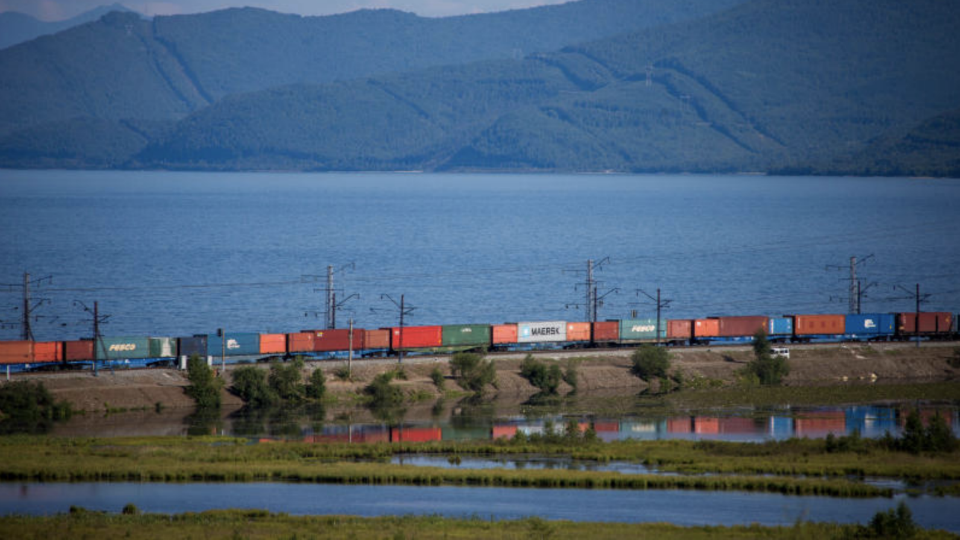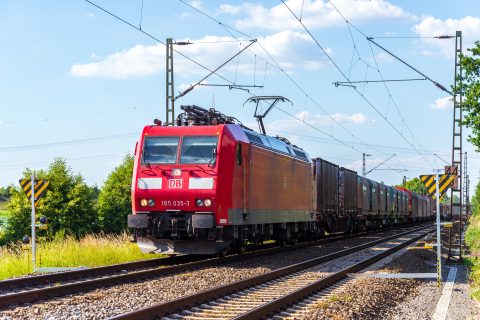Sanctions or not: these companies stop transit through Russia

More and more companies are taking a stance and choose to avoid the New Silk Road through Russia, responding to the invasion of Russia in Ukraine. Transit traffic through Russia may be possible technically, but from a moral point of view, it is not desirable, is the conclusion drawn by a growing list of companies.
These include end customers that used the New Silk Road to ship their products between Europe and China, but also logistics companies and railway undertakings. “The volumes are dropping, and a lot of this is shifting to other modalities”, said Martin Koubek from Metrans during the recently held webinar on the impact of the war in Ukraine on rail.
Tech firms and logistics giants
One of the larger customers of the New Silk Road that made the headlines this week is networking gear maker Zyxel Communications Corp, which has stopped shipping from China to Europe by rail due to the Russian invasion of Ukraine. It was not the first tech-company; according to logistics providers, laptop manufacturers that have been on the New Silk Road from the beginning have already taken the same decision.
Similarly, large logistics companies have made a point with a temporary stop of transit through Russia. This week, CMA CGM, Maersk and MSC made the announcement that they would no longer accept any bookings to Russian destinations for all transport modes. HHLA also announced a stop in all its Hamburg-based terminals of handling containers from Russia. “This also applies to cargo transported by rail, barge or truck”, the company said.
In 2020, HHLA handled a total of 229 thousand TEU of containers at the Hamburg container terminals (approx. 3 percent of HHLA’s total container throughput) with Russia as shipping region. A significant decline already occurred in 2014 as a result of the sanctions imposed on Russia in response to the annexation of Crimea.
Further information on the situation and possible financial impact on HHLA will be provided with the publication of the Consolidated Financial Statements on 24 March 2022.
Ethical decision
“The world of today asks for ethical decisions, values and actions. Although the sanctions to Russia and Belarus are currently not impacting rail business through Russia and Belarus, we have decided differently and not to support the service as long as the aggression and invasion takes place”, says RailBridgeCargo, a Dutch logistics company that has also decided to stop its services through Russia.
“Our biggest motivation is that we don’t want to contribute financial profits to the Russian government as long as this means destroying the lives of families, friends and children. As a company we can’t look away and therefore we re-route all our rail routes to our Southern routes between Asia and Europe.”
About time
According to Allrail, a European rail industry association, the response of the rail industry comes rather late. “There has been a contrast between the firm and decisive measures to strengthen trade restrictions against Russia in the airline sector compared to the rail sector. This is a surprise, considering the major role that the Russian rail operator RZD played in moving Putin’s military to Ukraine’s border over the recent months”, it says.
ALLRAIL Secretary General Nick Brooks states: “All European rail companies currently working together with RZD should emulate Delta Air Lines and unequivocally commit to stop doing so – as long as the aggressor Putin remains in power”.
Russian Railways
Russian Railways is on the sanction list of both the EU and the US. However, the company is subject to financial sanctions, concerned with the capital market. In practice, doing business with the company is still possible, meaning that a logistics company is not refrained from using its services.
This was the main conclusion during the webinar about the impact of the Ukraine war on rail freight. Although it was received as good news to many, a critical note was made by others that sanctions are not to be circumvented, as it would undermine the effectiveness of these sanctions. The question should not be if you can, but if you want to do business with Russian Railways, several attendees commented.
Alternatives
What are the alternatives? “In all fairness, these are cargo flows that will shift to other modalities,” said Rien Gulden from KLG Europe. “We do try to use the corridor via Turkey, but to be honest, this is not a viable solution”, said Koubek.
RailBridgeCargo explains about its rerouting through Turkey: This route is available from China to Istanbul to connect directly to our European network into central Europe (Vienna, Duisburg, Neuss). These shipments are not transferred through Russian territory, only via Kazakhstan.
“We realise our decision can reduce the actual logistic opportunities but continuing it with all the insecurities and mostly the painful events which are taking place, we decide to stay close to our company values. And since companies are made out of values we don’t sacrifice them.”
You just read one of our premium articles free of charge
Want full access? Take advantage of our exclusive offer






